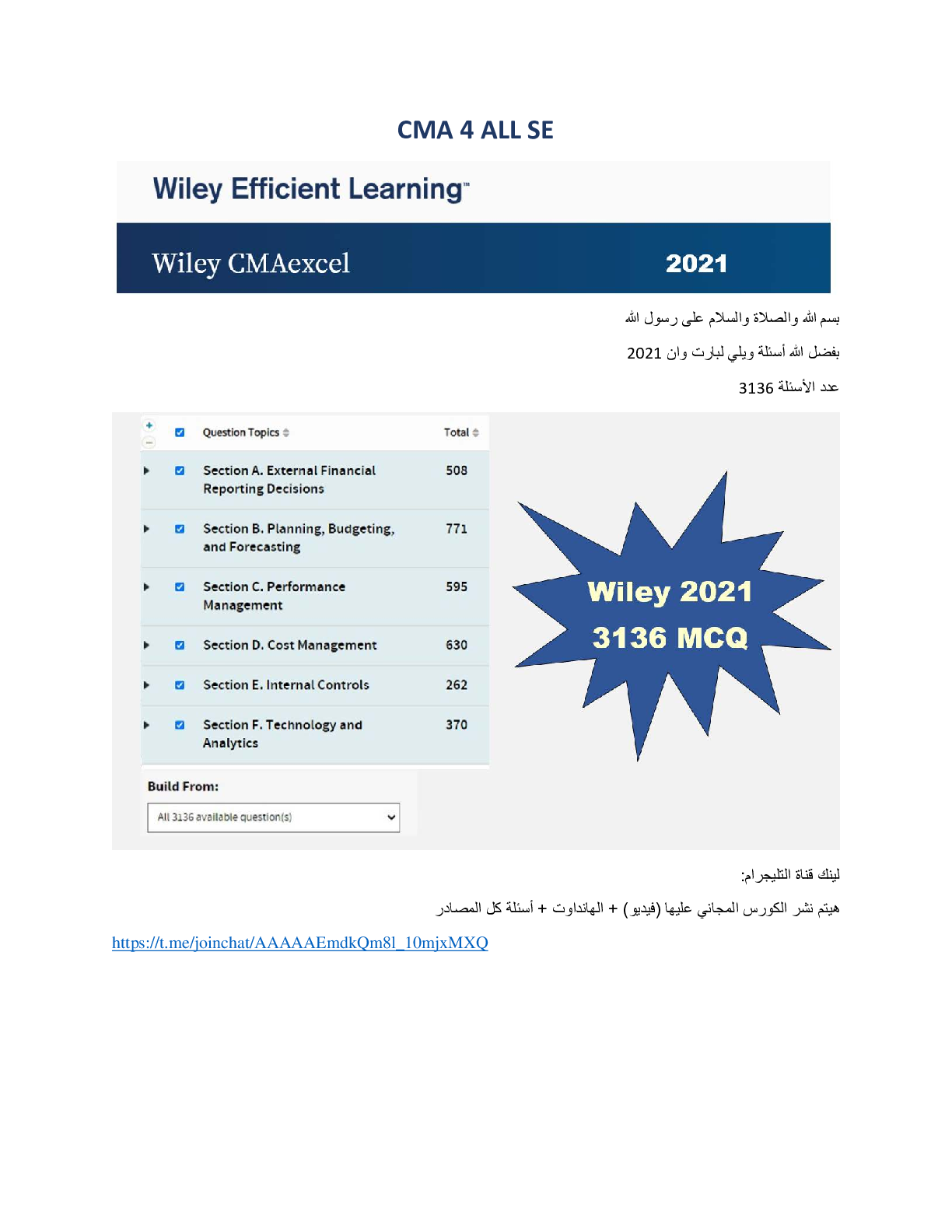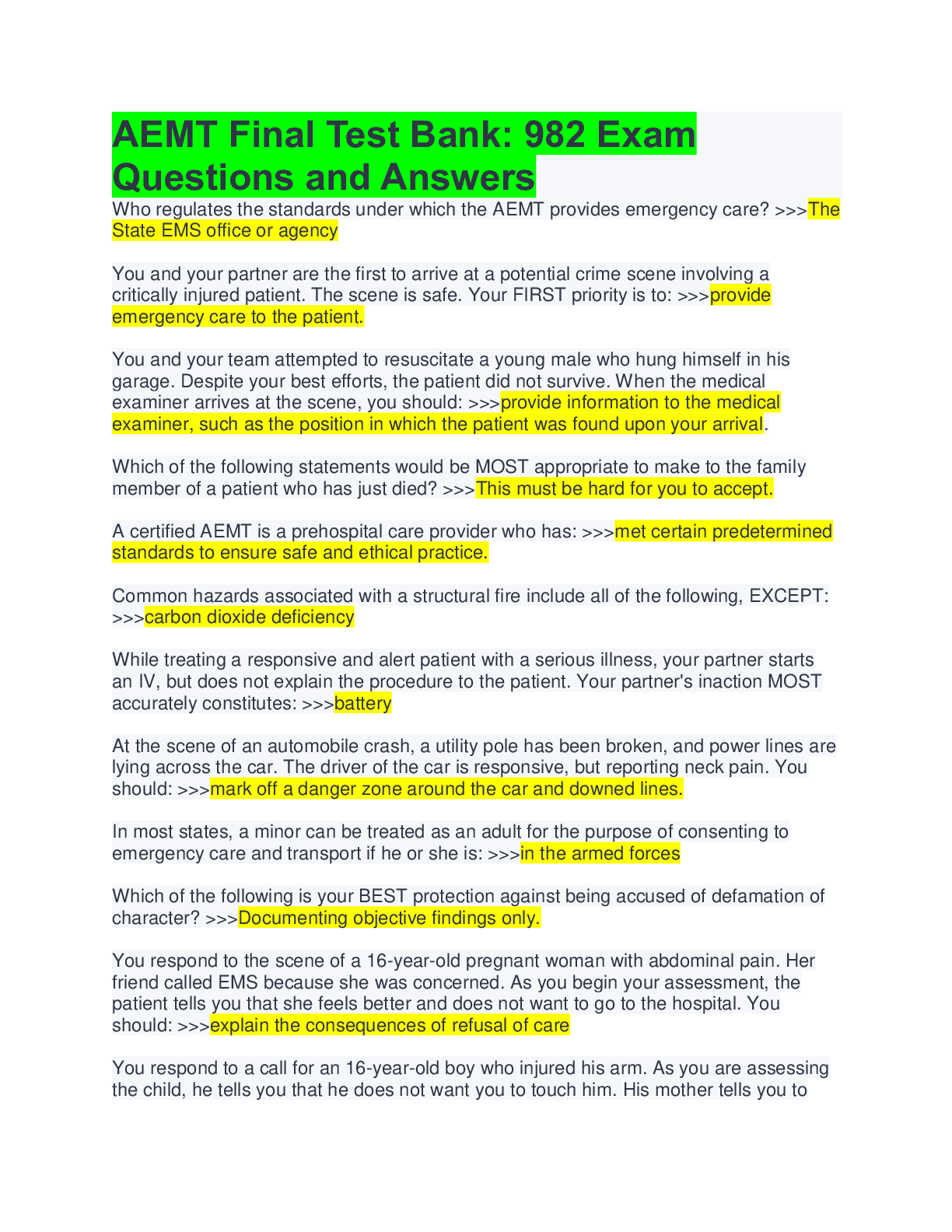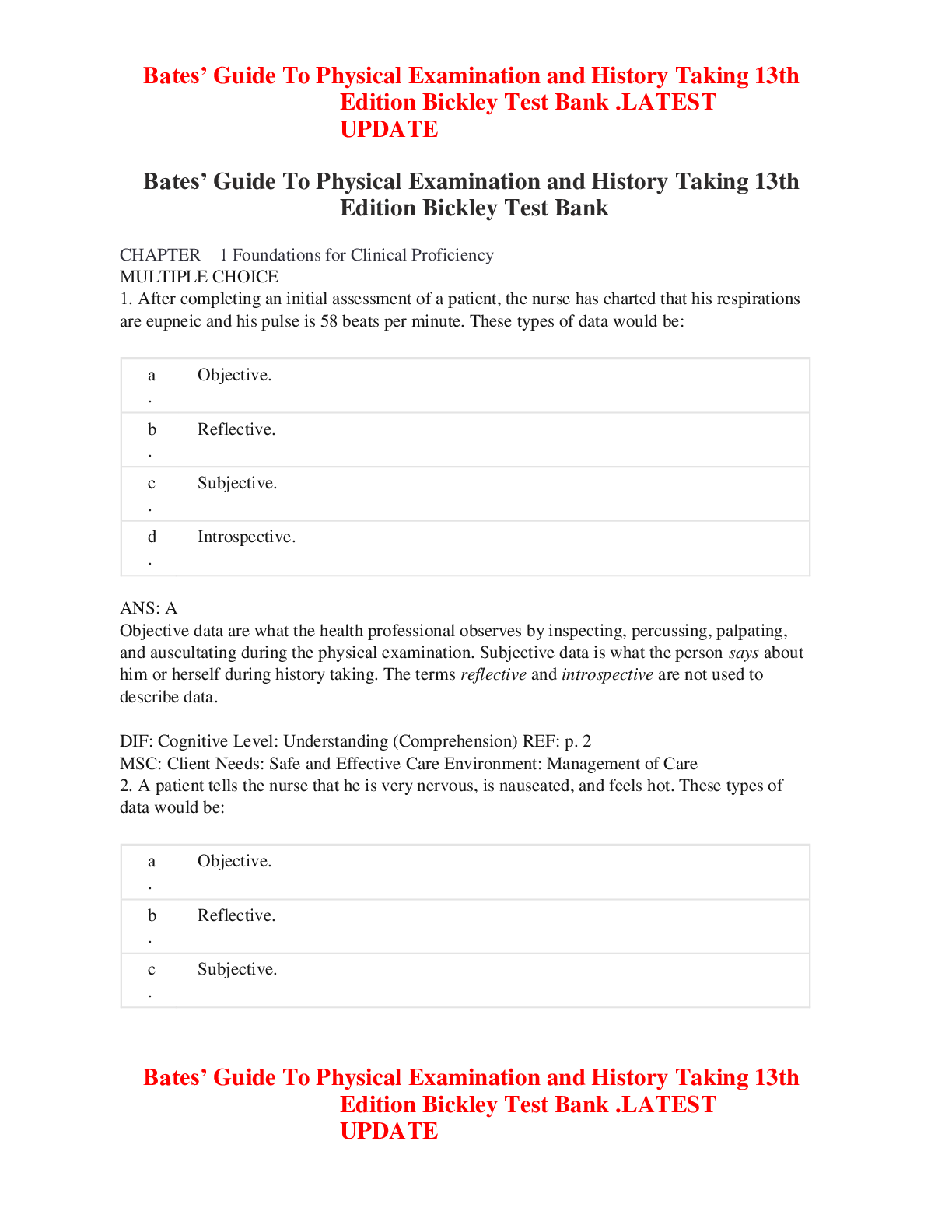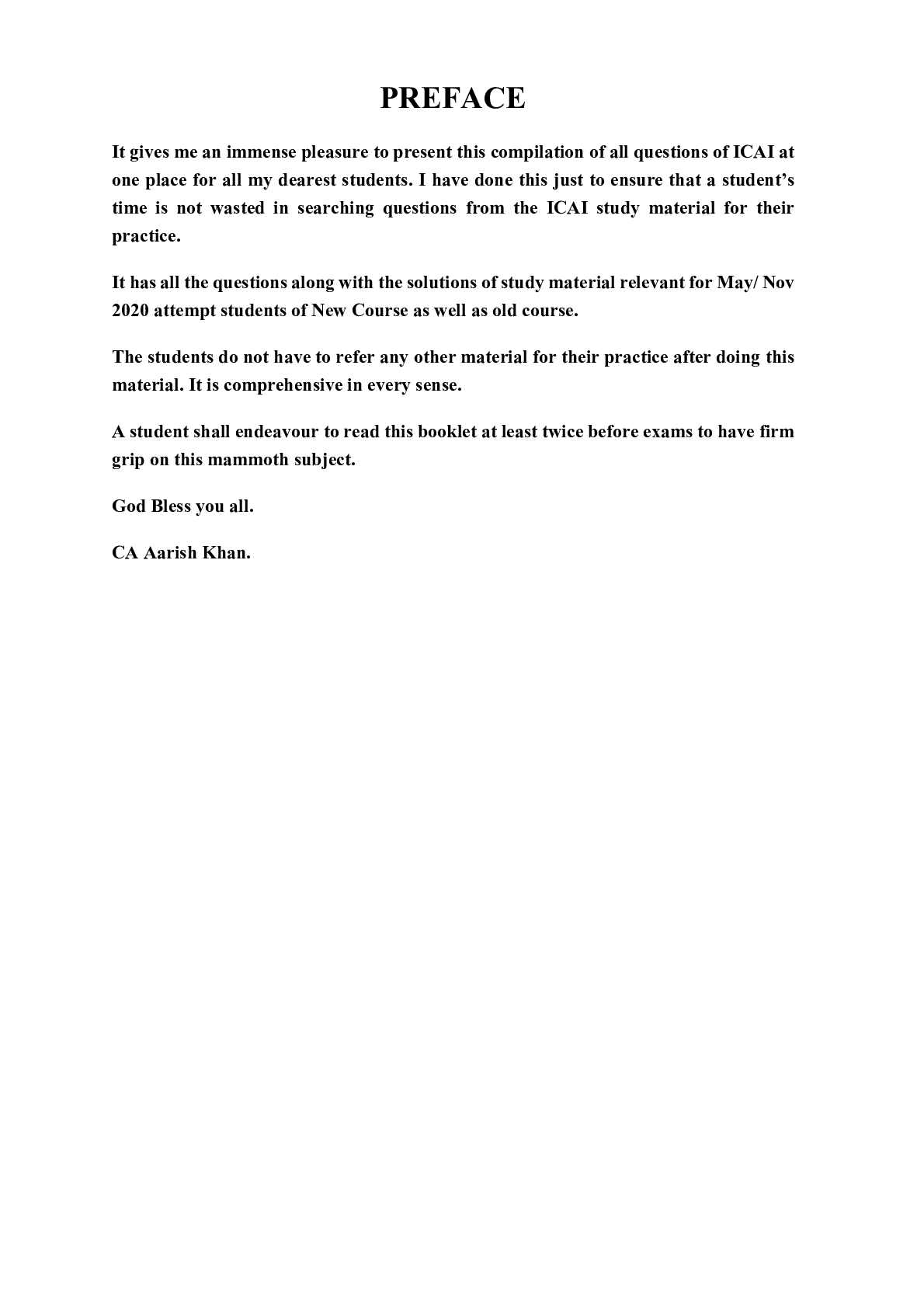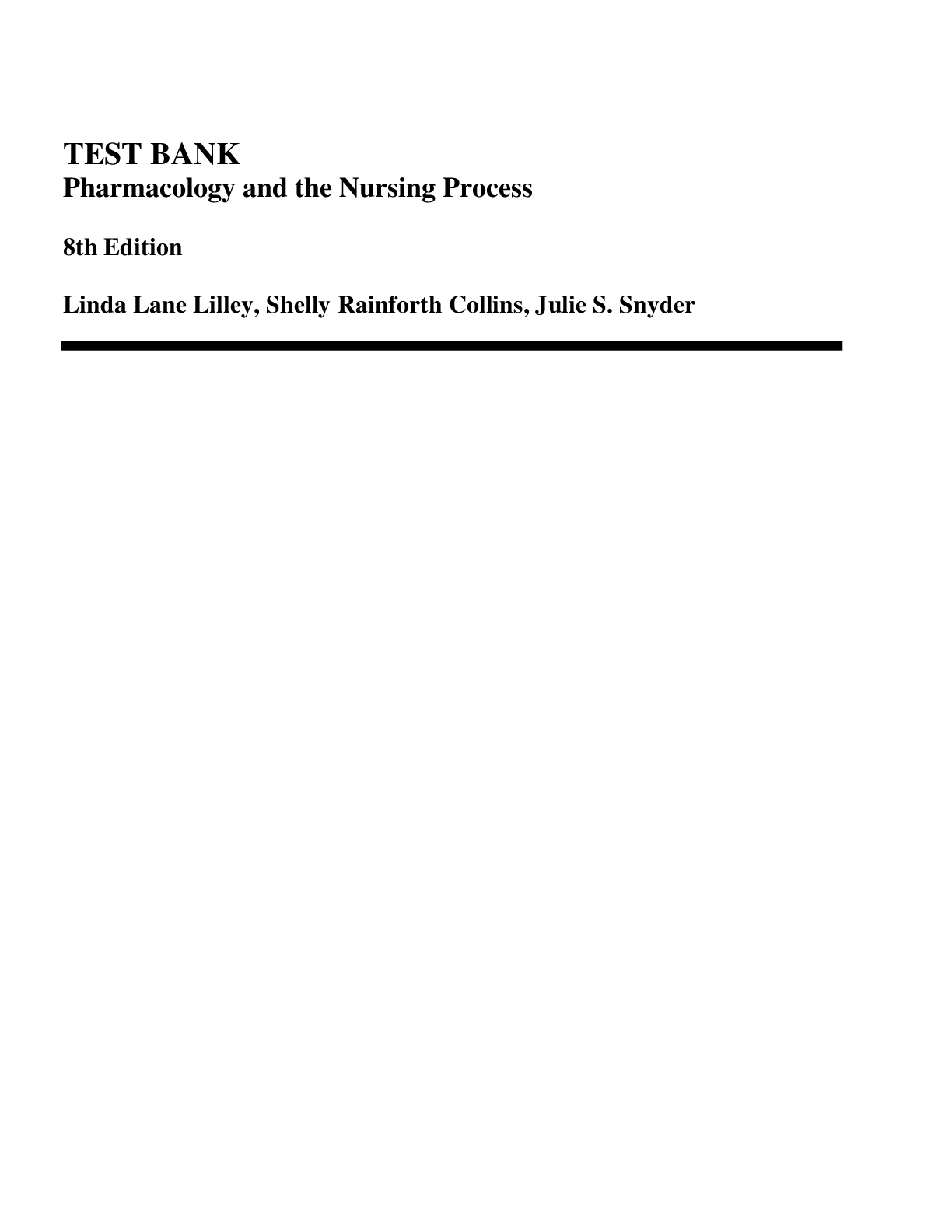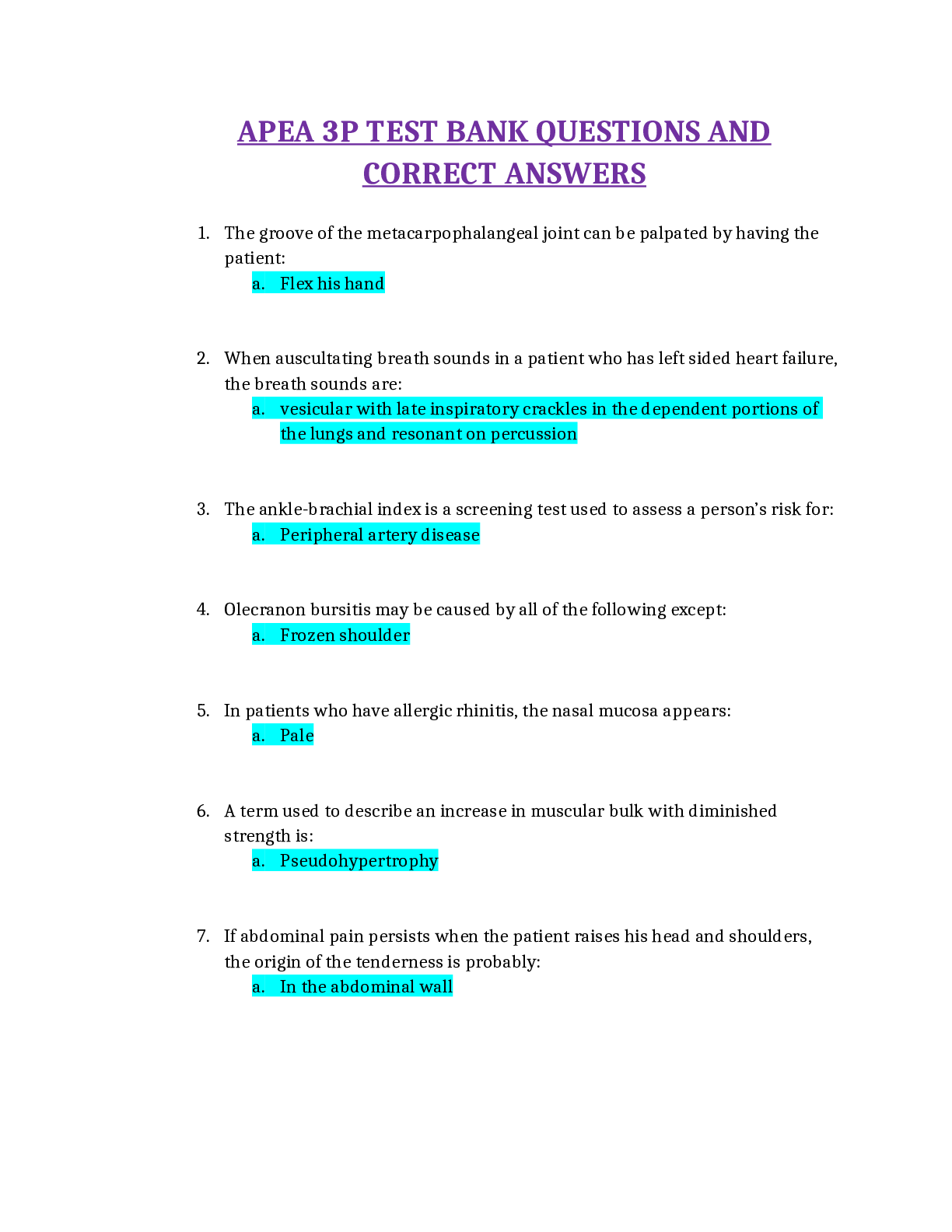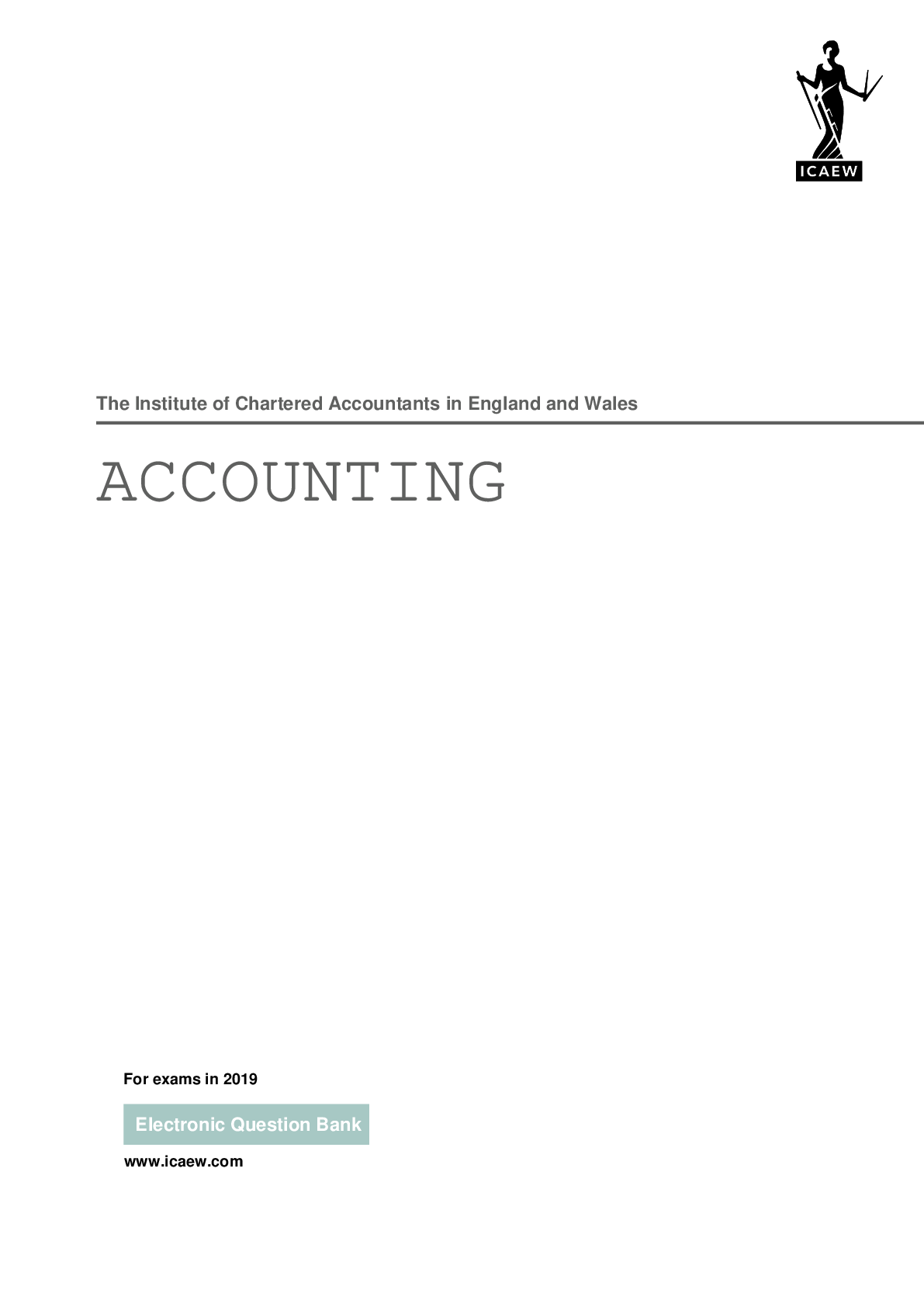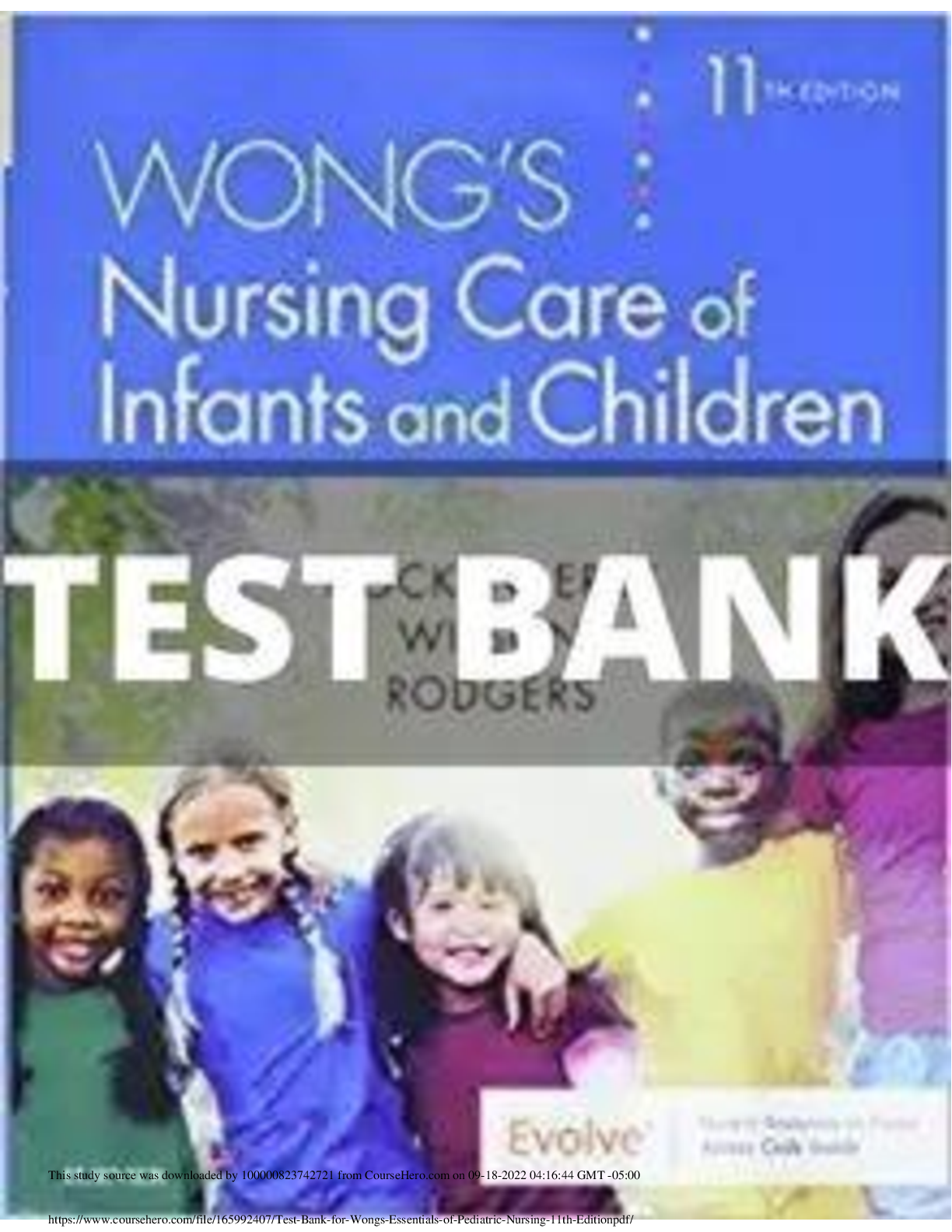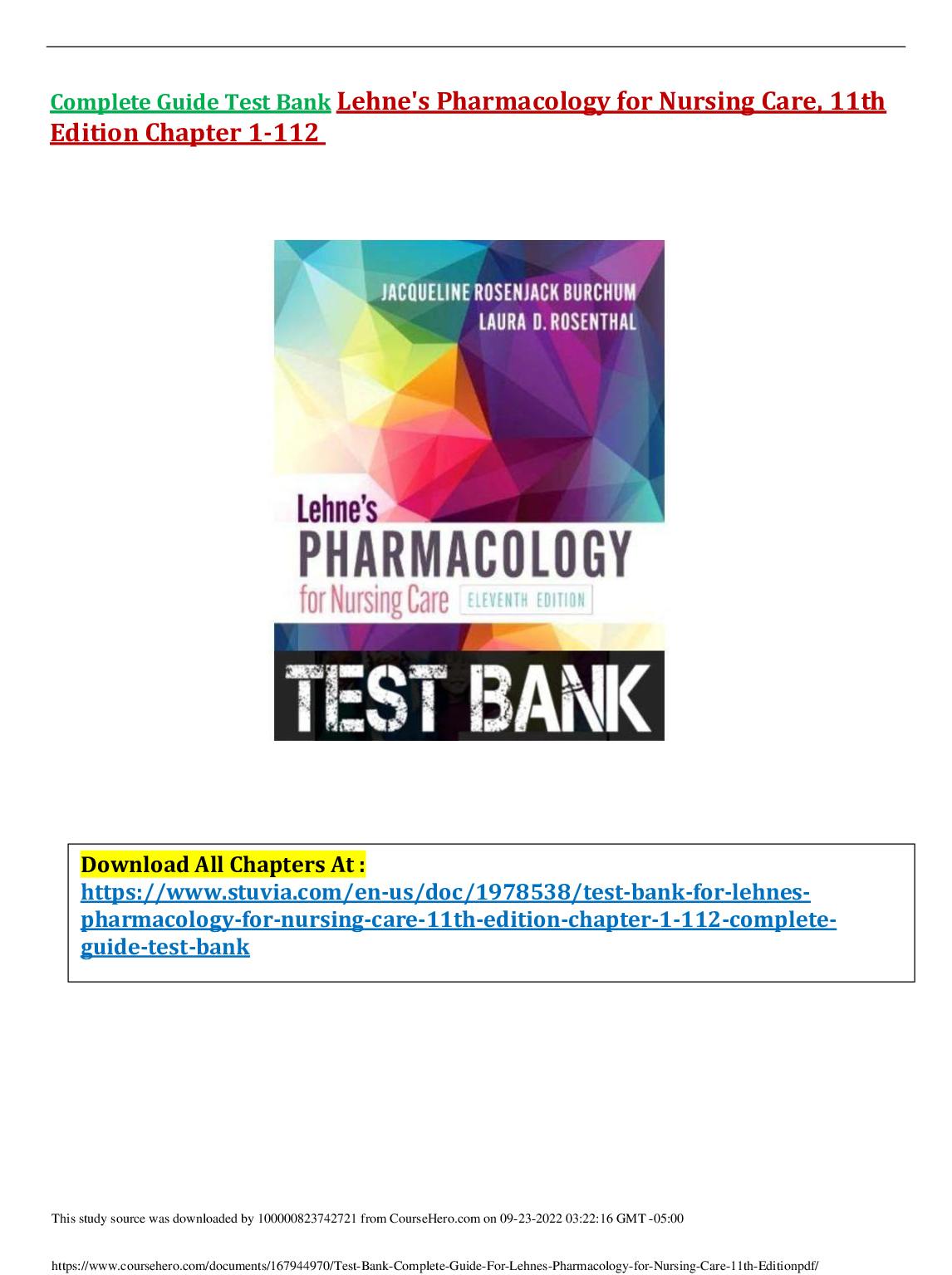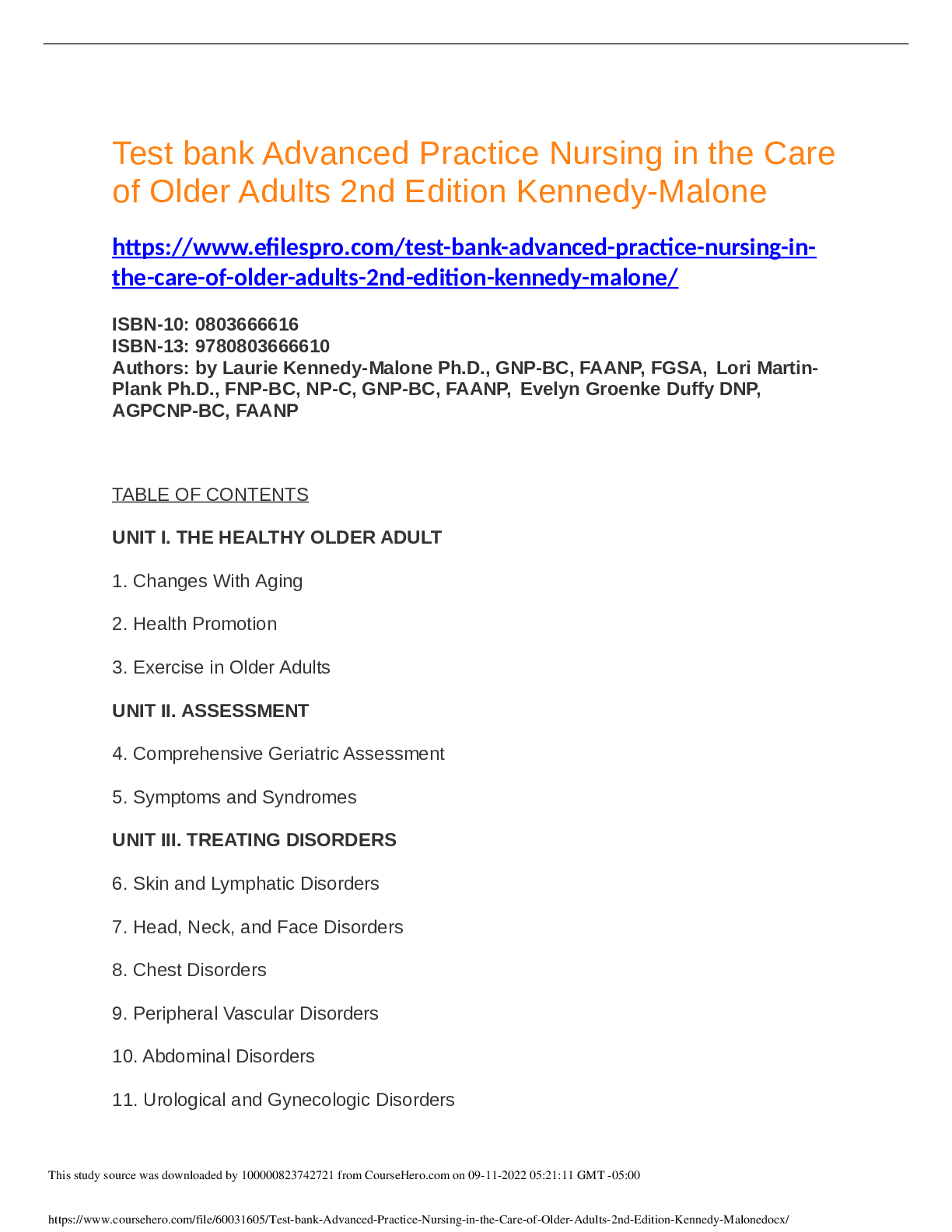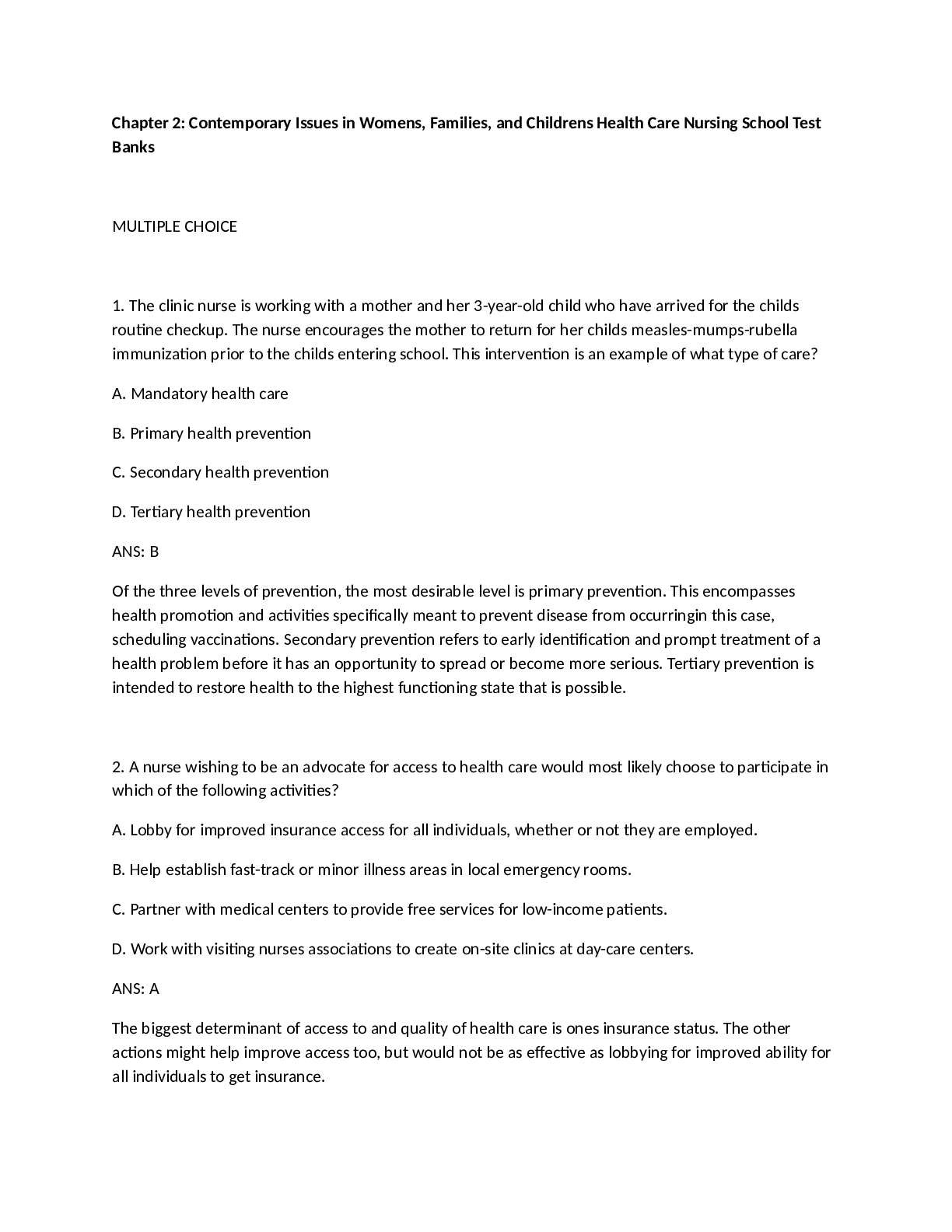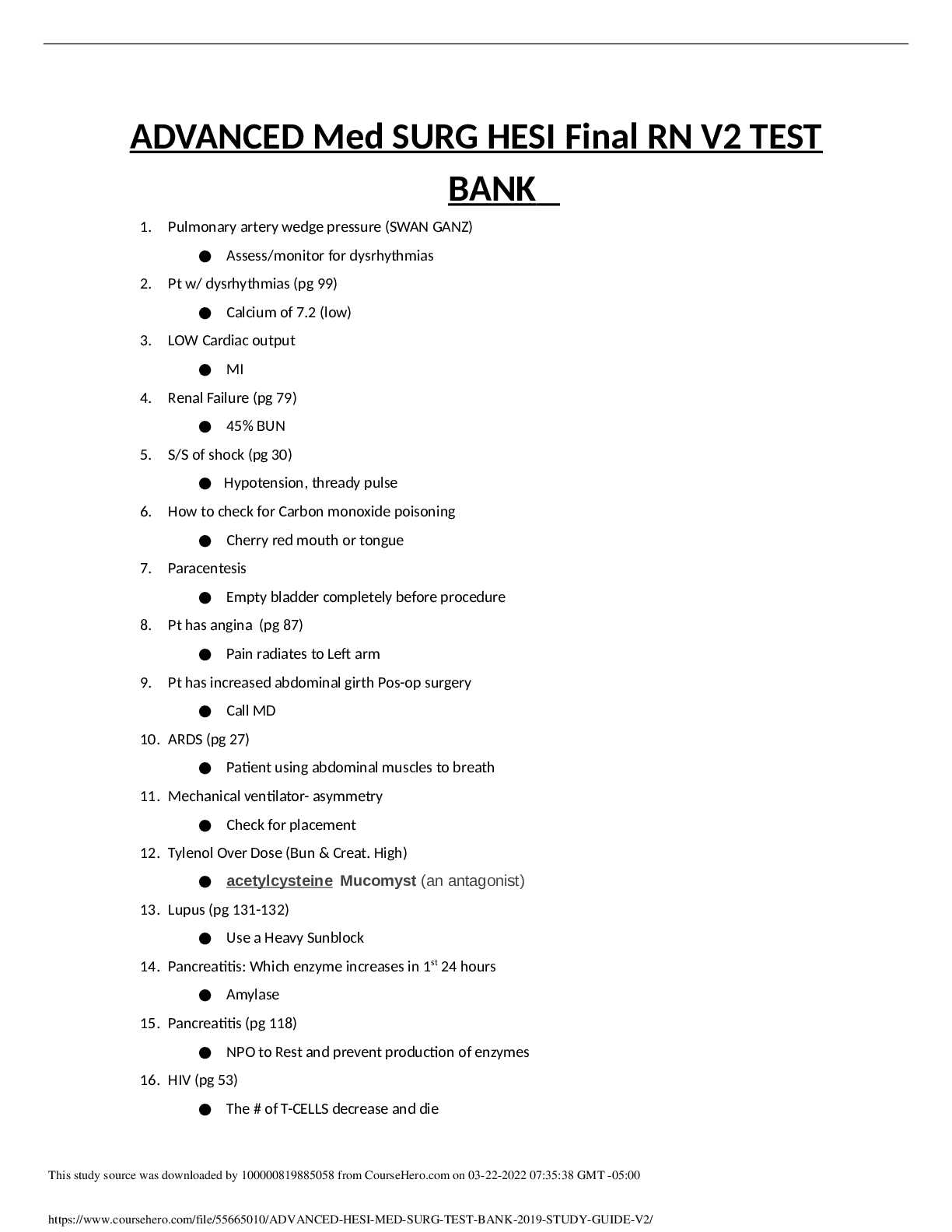Health Care > TEST BANK > (Answered) Health assessment final Exam 1 - jarvis test bank (All)
(Answered) Health assessment final Exam 1 - jarvis test bank
Document Content and Description Below
(Answered) Health assessment final Exam 1 - jarvis test bank A physician tells the nurse that a patients vertebra prominens is tender and asks the nurse to reevaluate the area in 1 hour. The area... of the body the nurse will assess is: a. Just above the diaphragm. b. Just lateral to the knee cap. c. At the level of the C7 vertebra. d. At the level of the T11 vertebra.>>> C A mother brings her 2-month-old daughter in for an examination and says, My daughter rolled over against the wall, and now I have noticed that she has this spot that is soft on the top of her head. Is something terribly wrong? The nurses best response would be: a. Perhaps that could be a result of your dietary intake during pregnancy. b. Your baby may have craniosynostosis, a disease of the sutures of the brain. c. That soft spot may be an indication of cretinism or congenital hypothyroidism. d. That soft spot is normal, and actually allows for growth of the brain during the first year of your babys life>>> D The nurse notices that a patients palpebral fissures are not symmetric. On examination, the nurse may find that damage has occurred to which cranial nerve (CN)? a. III b. V c. VII d. VIII>>> C A patient is unable to differentiate between sharp and dull stimulation to both sides of her face. The nurse suspects: a. Bell palsy. b. Damage to the trigeminal nerve. c. Frostbite with resultant paresthesia to the cheeks. d. Scleroderma.>>> B When examining the face of a patient, the nurse is aware that the two pairs of salivary glands that are accessible to examination are the ___________ and ___________ glands. a. Occipital; submental b. Parotid; jugulodigastric c. Parotid; submandibular d. Submandibular; occipital>>> C A patient comes to the clinic complaining of neck and shoulder pain and is unable to turn her head. The nurse suspects damage to CN ______ and proceeds with the examination by _____________. a. XI; palpating the anterior and posterior triangles b. XI; asking the patient to shrug her shoulders against resistance c. XII; percussing the sternomastoid and submandibular neck muscles d. XII; assessing for a positive Romberg sign>>> B When examining a patients CN function, the nurse remembers that the muscles in the neck that are innervated by CN XI are the: a. Sternomastoid and trapezius. b. Spinal accessory and omohyoid. c. Trapezius and sternomandibular. d. Sternomandibular and spinal accessory.>>> A A patients laboratory data reveal an elevated thyroxine (T4) level. The nurse would proceed with an examination of the _____ gland. a. Thyroid b. Paroti [Show More]
Last updated: 2 years ago
Preview 1 out of 28 pages
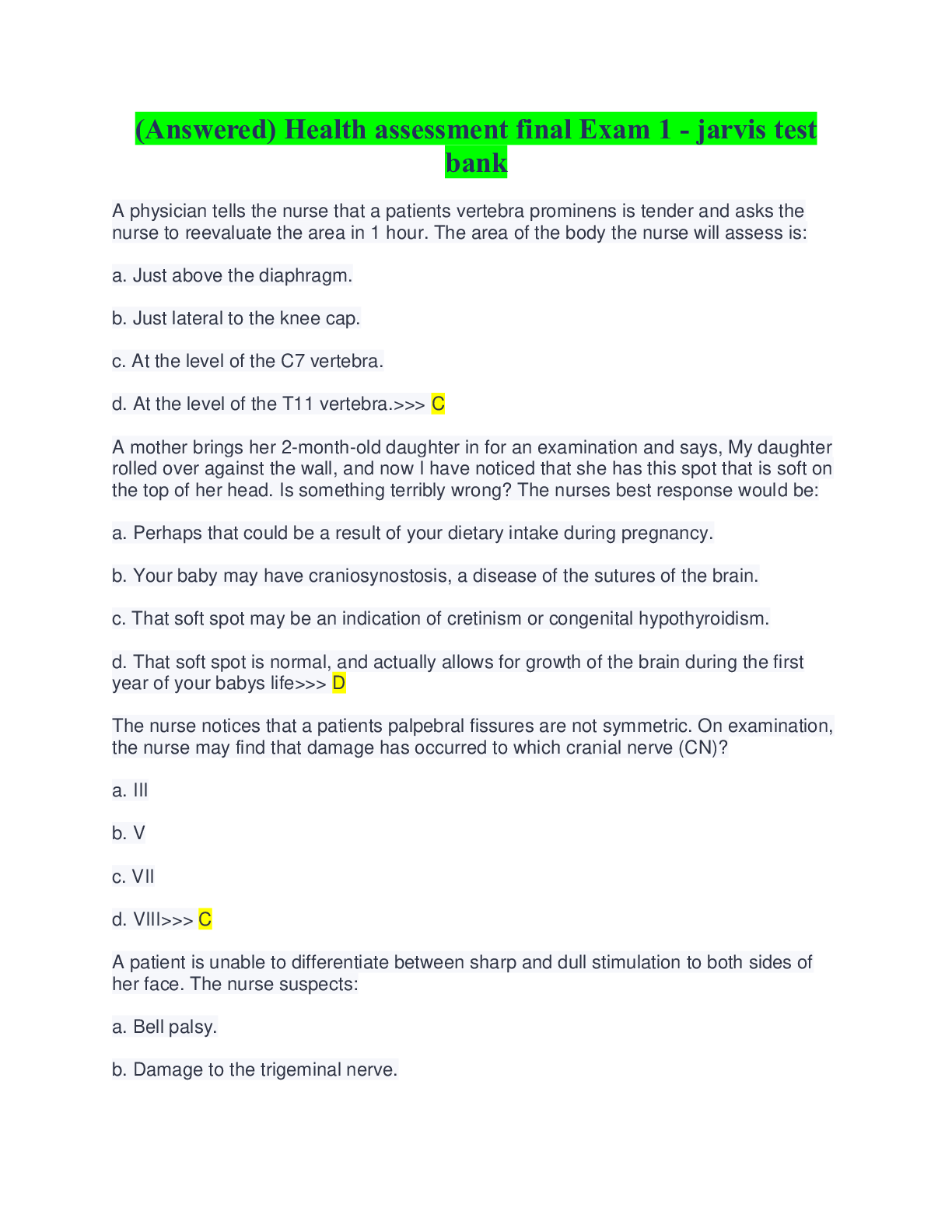
Buy this document to get the full access instantly
Instant Download Access after purchase
Buy NowInstant download
We Accept:

Reviews( 0 )
$7.00
Can't find what you want? Try our AI powered Search
Document information
Connected school, study & course
About the document
Uploaded On
Sep 18, 2022
Number of pages
28
Written in
Additional information
This document has been written for:
Uploaded
Sep 18, 2022
Downloads
0
Views
115

